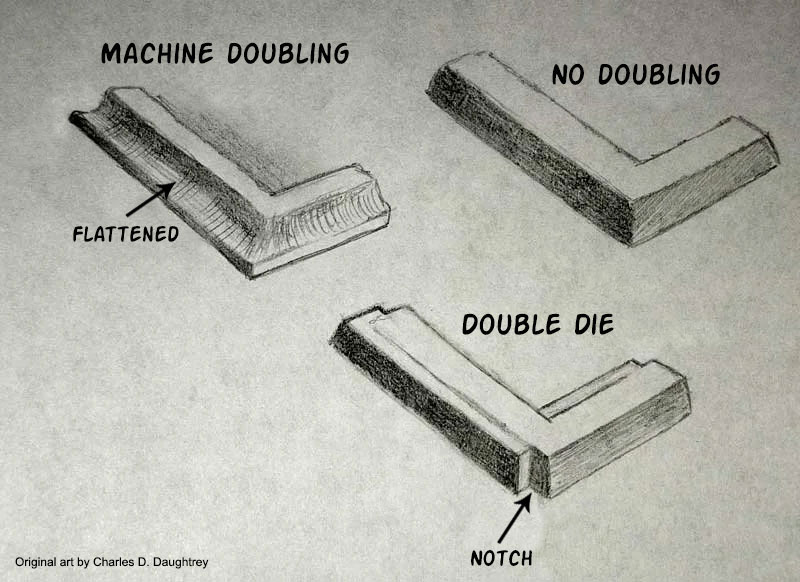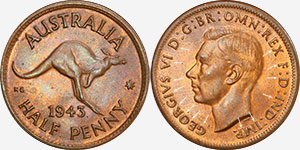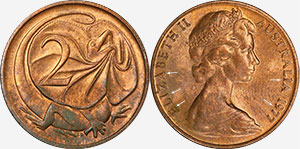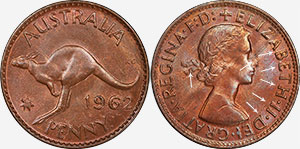1943 Half Penny and 1977 Two Cent Double Dies
By CAA | Wednesday, 9 October 2024
A recent submission at PCGS by an Australian coin dealer included a 1943 Australian Half Penny and 1977 Australian 2 Cents, both featuring obverse doubled die varieties that are now being recognized by PCGS.
These Double Dies were known for some time. For example, a full red uncirculated 2 cents 1977 double die obverse realized $500 plus commission in Downies Auction #315 in October 2013.
We love receiving rare and unusual world coin varieties like these cool 1943 Half Penny and 1977 Australian 2 Cents coins. PCGS continues to recognize and certify varieties for coinage from around the world. Australia is no exception, and PCGS is proud to add these examples to its ever-growing census.
- PCGS President Stephanie Sabin
The coins were submitted to PCGS by way of Drake Sterling Numismatics, an Australian PCGS Authorized Dealer who sent them to PCGS on behalf of an individual in Perth, Australia. These varieties both exhibit significant obverse doubling that can be seen with the unaided eye.
The 1943 Australian Half Penny shows heavy doubling in the inscription GEORGIVS VI D : G : BR : OMN : REX F : D : IND : IMP.
The 1977 Australia 2 Cents obverse doubled die exhibits heavy doubling with significant spread in the inscriptions ELIZABETH II, AUSTRALIA and 1977. The mint of origin cannot be 100% ascertained, though the coin most likely hailed from the Perth Mint.
Being entrusted to encapsulate these two varieties exemplifies the confidence that world coin dealers and collectors have in PCGS and its attribution services.
- PCGS President Stephanie Sabin
Other double die varieties are known in Australian coinage.
Double die

Original art by Charles D. Daughtrey
Double die (or hub doubling) coins present a clear doubling on numbers, on letters and/or occasionally on the main design. The doubling was already on the die before the striking process.
It is caused by a misalignment or mismatch between the hub and the die which happens during the hubbing process, i.e. when the design on the hub is transferred by die sinking or annealing. This metal working process is used to softened the die and help the impression on it. Double die occurs between the first and subsequent hubbing.
The doubling from a double die is marked by a clear doubling and all coins struck from a double die will show the same degree of doubling from coin to coin. On a die deterioration, the doubling is undefined, rough and of different width with subsequent strikes.










